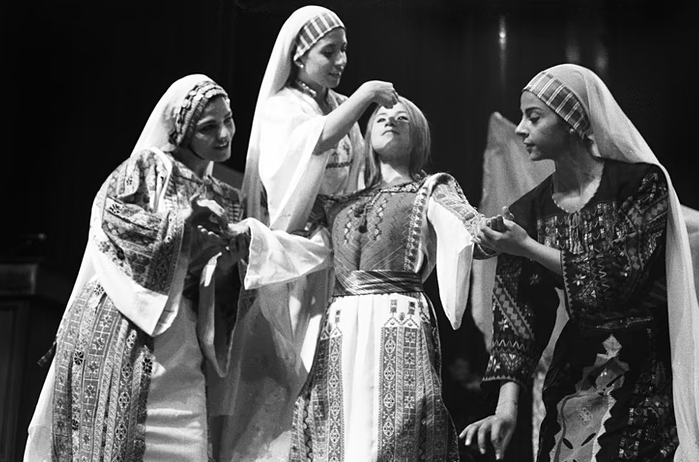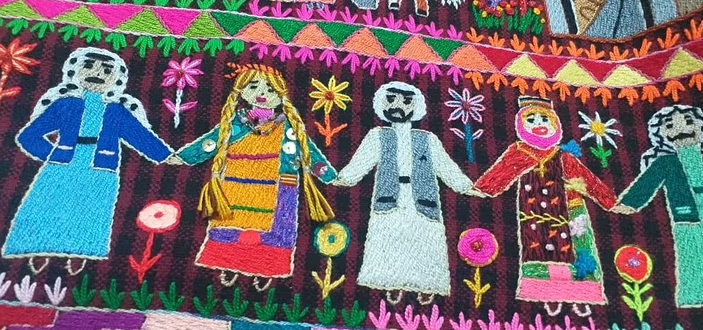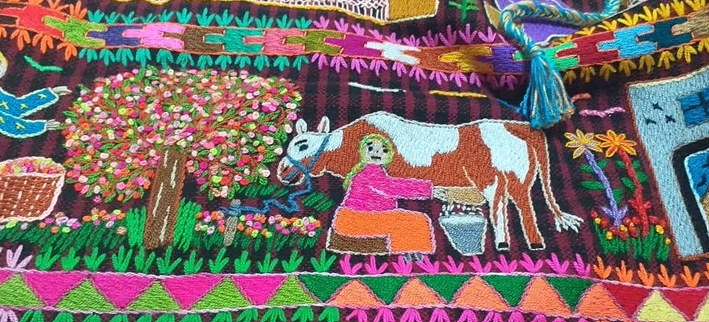Embroidery in the Age of Corona
Documentation and Practice from Iraq, Jordan, Netherlands.
Fatima Abbadi, embroiderer, photographer, Capelle aan den Ijssel, Netherlands.
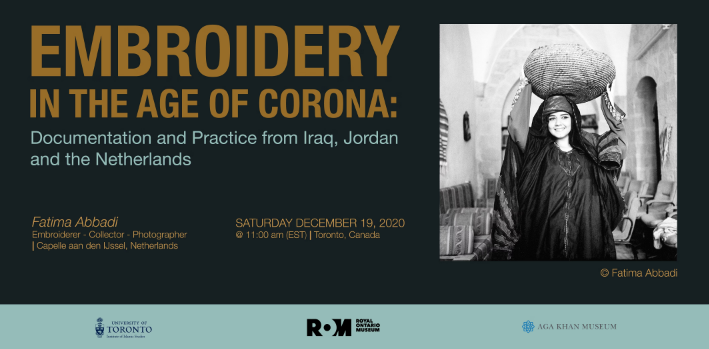
According to Fatima Abbadi, a photographer and practising embroiderer and collector of Jordanian and Palestinian embroidered dress, “So much can be said from a small piece of hand-embroidered cloth. With every stitch it can reveal many women’s hidden stories formed from struggle and resilience, personal life experiences, rites of passage and political statements. For generations, this practice has been passed down from mother to daughter, carrying along all of these stories, but for the last few decades, this practice has either vanished in certain parts of the world or been replaced by industrial machine embroidery. Due to all of these factors, I find it crucial to keep alive this extraordinary handcraft by teaching and talking about it. Preserving it means keeping alive traditions, culture and heritage, reinforcing women’s connections with their land of origin and, at the same time, embroidery is a vehicle towards community building, and female aggregation and empowerment.”
In this conversation, Fatima will share her passion for Jordanian and Palestinian embroidery traditions and her ongoing project to teach embroidery in the Netherlands. She will also talk about the work of Suzan Sukari, a contemporary embroiderer from a Christian community in the northern Iraqi city of Qaraqosh. Despite the upheavals of war in her region, Suzan continues to produce special festive garments (charuga), that combine age-old designs and motifs with newly developed iconography representing scenes from everyday life. Fatima will also discuss her recent publication, Al-Salt: A Photo Documentary Project, and how she has employed photography to document, promote and preserve her Jordanian culture and heritage.
Fatima Abbadi is a freelance photographer, embroiderer and collector of Jordanian and Palestinian traditional dress who lives in the Netherlands. Growing up between the UAE (Abu Dhabi) and Jordan, she moved to Italy in 1997 for her postgraduate studies where she stayed until 2019. Fatima is a member of the Italian Mignon Group, established in 1995 to promote the photographic genre of Street Photography and the use of analogue cameras in black and white film (http://www.mignon.it/about/fatima-abbadi). Fatima’s artistic practice embraces the Mignon philosophy by documenting daily life in the towns, villages and streets of Europe and the Middle East and she personally develops and prints her photographs in the darkroom. Often focussing on female subjects, Fatima uses the medium of photography to explore many facets of daily life with the intention of creating intercultural bridges of understanding and mutual respect through her art. The themes of her major projects include: Women’s Images Revisited, A Study of the Orientalist Phenomenon, and Tatreez: Palestinian Embroidery.
This conversation will be hosted by the series organizer, Dr Fahmida Suleman, Curator of Islamic Art & Culture, Royal Ontario Museum.
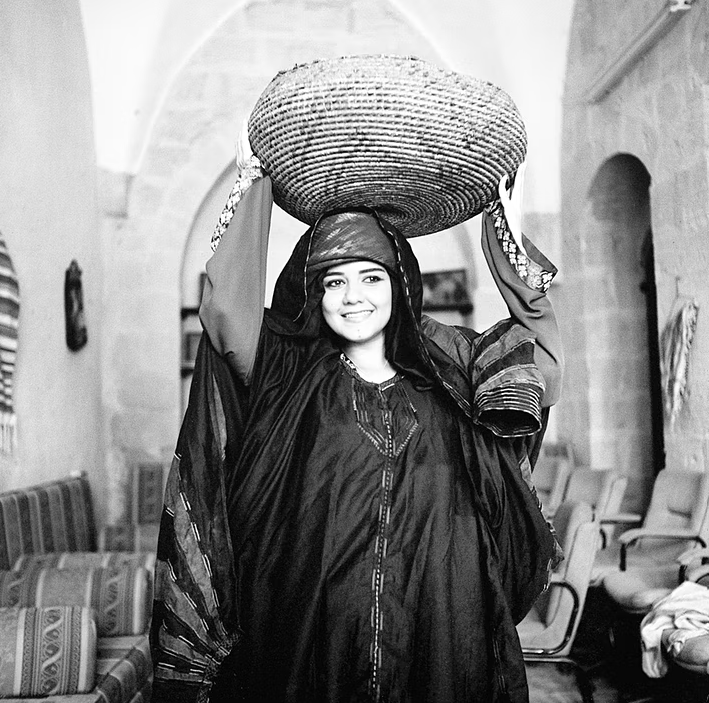
This event is part of an eight-part monthly series entitled “Crafting Conversations: Discourses on the Craft Heritage of the Islamic World – Past, Present and Future,” an initiative of the Islamic Art and Material Culture Collaborative (IAMCC), Toronto, Canada.
The IAMCC is a new research network based in Toronto that brings together the capacities and resources of the University of Toronto, the Royal Ontario Museum and the Aga Khan Museum. Its aim is to foster innovative and interdisciplinary research on the diverse arts and material cultures of the Islamic world in its broadest sense.
For more information on the series and the IAMCC, please visit: https://islamicstudies.artsci.utoronto.ca/research-labs/islamic-art-and-material-culture-collective-iamcc/. This event will be held via Zoom. If you have any questions or want to be added to the IAMCC mailing list please email: fsuleman@rom.on.ca
